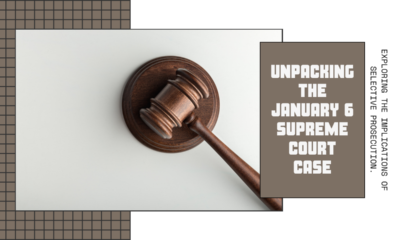Entertainment Today
Nichelle Nichols, R.I.P.
Nichelle Nichols, better known as Lieutenant Uhura on Star Trek, died over the weekend. She leaves behind a brilliant legacy.
Two nights ago, Actress Nichelle Nichols, known to Star Trek fans as “Lieutenant Uhura,” died quietly at home. She was 89 years old. Naturally, Star Trek fans are mourning her passing, as anyone should expect. But in fact she was a true pioneer in American television. What Sidney Poitier did for movies, Nichelle Nichols did for television. And she made it look like the most natural thing in the world – or a Galaxy.
Even the White House pays tribute to Nichelle Nichols
Reportage on her passing comes from NPR, The Washington Post, USA Today, The New York Times, and PBS Newshour. Those reports mainly contain the bare facts of her career and how she died. (Details on that are sketchy; no doubt the death certificate has the giant economy-sized cause, “natural causes.” We have no indication that she suffered in any way.) The White House issued a brief statement that only hints at her achievements. Its first paragraph sums it up nicely:
In Nichelle Nichols, our nation has lost a trailblazer of stage and screen who redefined what is possible for Black Americans and women.
All perfectly true. But that doesn’t tell the half of what she achieved, and what she meant to so many. Fans of the show, of course – through three seasons and six feature films. But let’s not forget the rest of the cast (who still survive), and her family. And in cast, let’s include Actress Kate Mulgrew, who played Captain Kathryn Janeway of USS Voyager. She left this message on her blue-checkmark account on Twitter:
Nichelle Nichols was The First. She was a trailblazer who navigated a very challenging trail with grit, grace, and a gorgeous fire we are not likely to see again.
NASA graciously acknowledged her role as a recruiter.
They might have mentioned that she was on hand for the roll-out of NASA’s glide-test shuttle model. Which they named Enterprise, in honor of the fictional ship on which her character served.
Nichelle Nichols told her story earlier
By far the best sources your editor has – other than reruns of the original series – are two contemporary books. They are The Trouble With Tribbles and The World of Star Trek by writer David Gerrold. Mr. Gerrold published these in the 1970s, before the first feature film came out. So those sources are as close to contemporary as anything other than a script.
Few were better qualified to write about Star Trek from a near-outsider’s perspective than David Gerrold. Star Trek gave him his start in television. And, then as now, developing the connections to break into professional writing is extremely difficult. But he did it, and gained the confidence of cast and crew alike. For The World of Star Trek, he interviewed seven of the eight regular cast members. (Majel Barrett, who married creator Gene Roddenberry, deferred to him.) Nichelle Nichols gave one of these interviews – and no other source has a better perspective.
From the beginning Nichelle Nichols asserted herself, and that act paid dividends. To get the part, she had to read some lines. The problem was that her character was so new that she didn’t have a name. So Joe D’Agosta, the casting director, asked her to read some of Spock’s lines. But instead of telling her about Spock, he wanted to tell her about this new character. So she insisted that they tell her about Spock, so she could deliver his lines. They did, she did, and it worked.
A persistent problem
That interview reveals two other interesting things about her career. First, the harassment of women on set was a problem. (In fact, Gene Roddenberry had a nasty reputation for it, but that would become apparent only years after he died.) Yet Nichelle Nichols doesn’t seem to have had much of a problem with it. Why not? Perhaps because, in at least two encounters, she let the men know she would never tolerate it.
The first episode involved Cinematographer Jerry Finnerman. He met her on the set for the first time. Then, a propos of nothing, he reached out, took her face lightly in his hands, and said, “I’m going to do great things with you.” She abruptly rebuked him and fled. Then someone told her who he was, and she must have feared that she’d just lost her job. Wrong. Mr. Finnerman came to her dressing room and apologized for the misunderstanding. Then he explained that by “great things” he meant that her face would lend itself beautifully to creative lighting, which is what cinematography is all about.
The second episode involved Gene Roddenberry himself. As she told David Gerrold, Nichelle Nichols saw a strange man hanging around the set – and paying her close attention. After several such near misses, she turned to him and said, “Now look, you …” Then she realized whom she was talking to! But your editor hasn’t heard a whisper of anything untoward after that. Evidently she earned his respect.
New to television
Two more incidents illustrate her amazing adaptability to a medium with which she had no experience. Both, again, involve Jerry Finnerman. In one case, he kept telling her, “Stay in your key lights!” The key lights, on stage or screen, are the lights that shine on the actor most of the time. But that requires the actor to stay in the area on which they shine. But Nichelle Nichols didn’t know anything about that. Finally, in frustration, Mr. Finnerman asked her, “Haven’t you been on television before?” She replied, No. Imagine his surprise! For she had done so well until then, that never before had her inexperience even been an issue.
Then came the episode that became a comedic legend on the set – one of several. Star Trek had a very happy set, in which cast and crew routinely played practical jokes on one another. This incident didn’t involve a practical joke – but without that history, there’s no telling how this episode would have ended. Mr. Finnerman was giving instructions on the adjustment of one of those “key lights.” It was out of position and keeping her in shadow. So the cinematographer kept shouting to his technician, “No, no, no, you’ve got her on the black! She’s black!” And he repeated that double-entendre several times before he realized how it must sound. When he did, he gulped, and said, “Uh … Nichelle …” And she replied, “But comely!” Which brought the house down!
Nichelle Nichols almost leaves
But for all that, Nichelle had to struggle to see the writers and story consultant develop her character more than enough to “open hailing frequencies.” In fact, once she muttered in frustration,
If I have to open a hailing frequency one more time, I’m going to blow up this [censored] panel!
All that happened was that someone wrote that line, slightly edited, into the script for the fifth episode they filmed. (Which actually was the first episode to air: “The Man Trap,” S01E01.)
The Man with the Dream says, “Stay the course”
That kind of thing might have influenced her decision to take a Broadway gig when someone offered her one. This she did not tell David Gerrold, but she did tell NPR for a 2011 interview. She went to Gene Roddenberry to tell him she was quitting. The announcement rocked him, and he begged her to take the next weekend to reflect on the kind of world he, Roddenberry, was trying to create. He even said she was integral to the show – but perhaps he had neglected to make that clear before.
That weekend, she attended a fundraiser for the NAACP in Beverly Hills. And she met Dr. Martin Luther King, Jr. Who told her that, though she never took part in a Civil Rights march, she reflected the world that Doctor King wanted to bring about.
And then she said she would miss her co-stars. That rocked Dr. King even more than it had Roddenberry. He said, “You can’t [leave]!” Then he explained:
Don’t you understand what this man [Roddenberry] has achieved? For the first time, we are being seen the world over as we should be seen. Do you understand that this is the only show that my wife Coretta and I will allow our little children to stay up and watch?
A nicer compliment would be difficult to imagine. So of course she stayed.
Marked improvements
The second and third seasons saw the greatest improvements in how the writers and producers handled her character. Whether she set a few ground rules, or whether Gene Roddenberry and his staff understand that they had dodged a phaser blast, we’ll likely never know. She didn’t say one word of this to David Gerrold, and that’s remarkable in itself. (If she had, he almost certainly would have mentioned it.)
David Gerrold himself deserves much of the credit for the improved character development. He, of course, wrote the script for “The Trouble With Tribbles” (S02E15). He needed a woman to fall for the tribbles and buy one to take aboard ship. So at first he wanted to use the character of Yeoman Janice Rand. But the producers had dropped that character. (See here for a discussion of the reasons – and much else.) Naturally Gerrold switched to Lieutenant Uhura.
The result was one of the best episodes of the original series. And Nichelle Nichols appreciated it very much. She told David Gerrold that, for the first time, she could act fully as a woman, not as a cardboard cutout.
Other good Uhura episodes
Actually that’s not quite correct. In “Mirror, Mirror” (S02E04), she becomes one of the four “normal” officers aboard a very dark version of the Enterprise. Earlier, in “The Changeling” (S02E03), an A.I. literally wipes out all her skills in a clumsy effort to get her to explain music to it. (Dr. McCoy creates a crash program to re-educate her, so that encounter does her no permanent injury.)
Two of her best episodes occur in the third season. In “The Tholian Web” (S03E09), the second of her two favorite episodes, Nichelle Nichols plays Uhura out of uniform, dressing (modestly) for sleep. Suddenly she sees her captain, floating, ghostlike, in front of her dressing table. She ends up confined to Sick Bay, until other officers report seeing the same vision. (Those visions give Spock the vital clue he needs to rescue Captain Kirk from an “interspatial sink.”)
Next comes “Plato’s Stepchildren” (S03E10). Nichelle made headlines in that episode, sharing the first interracial kiss with Captain Kirk. Kirk and Uhura object, not to kissing one another, but to their planetary captors telekinetically forcing them to do it. Apparently the studio executives summoned Nichelle to a conference about “The Kiss.” She told them, with all the self-assertion they perhaps should have remembered, that she intended to do the scene straight-up, and not hold back. The scene worked.
Nichelle Nichols subtly rebukes our world.
It’s worth remembering that Martin Luther King had fallen to James Earl Ray’s bullet in April of that year. Riots, of course, broke out in many cities east of the Mississippi on the strength of it. But Star Trek continued – and Nichelle Nichols stayed with it.
Which brings us to one episode in which she played an interesting part, however minor. That one is “Let That Be Your Last Battlefield” (S03E15). Frank Gorshin and Lou Antonio appear as two warring strangers – each black on one side and white on the other, but on opposite sides. The two spout all the typical 1960s slogans at one another – racism from Gorshin, militancy from Antonio. Watching those two, Lieutenants Uhura, Sulu and Chekov shake their heads in wonderment. At one point they observe that Earth knew persecution – and they read about it in history books.
In the end, Enterprise returns to their homeworld – and finds it deserted, its cities burned out, and still-decaying bodies registering on the sensors. All of the people are dead! The two have one more clash, and then Antonio flees to the surface, with Gorshin in hot pursuit. Uhura says, “But it doesn’t make any sense!” With that line, Nichelle Nichols expressed the ideal for which Marin Luther King encouraged her to keep striving. Namely, that a day would come when a multiracial crew would watch two men play out a drama from what to them is ancient history. And that drama would only mystify them.
Summary
Nichelle Nichols, sadly, did not appear in all episodes. She probably could have made a stronger mark in many of the episodes she missed. So we’ll never know what insight she would have brought to these story lines:
- “The Way to Eden” (S03E20). A gang of galactic drop-outs turns the lives of the Enterprise wardroom upside down. Then two of them die after reaching a world in forbidden territory.
- “Turnabout Intruder” (S03E24). A woman from Kirk’s past, resentful of his jilting her and of the Old Boy Network that maintains a glass ceiling, plots to supplant Kirk, in his command and even in his body.
In each of these episodes, a relief communicator sits in Uhura’s chair. Each episode would have been much better with Uhura’s insight.
But Nichelle Nichols still leaves a legacy we can only admire. It reaches far beyond Star Trek, and pervades the television industry. Few can dispute that she left American television a better place than she found it. Along the way, she helped improve American society as well.
Terry A. Hurlbut has been a student of politics, philosophy, and science for more than 35 years. He is a graduate of Yale College and has served as a physician-level laboratory administrator in a 250-bed community hospital. He also is a serious student of the Bible, is conversant in its two primary original languages, and has followed the creation-science movement closely since 1993.
-

 Executive3 days ago
Executive3 days agoThe Hunters Have Now Become The Hunted: Their Cruelties Are Swelling The Ranks Of The People Worldwide!
-

 Constitution3 days ago
Constitution3 days agoCHAPTER 9: Norman Dodd Interview Space Is No Longer the Final Frontier––Reality Is [upcoming release April 2024]
-

 Clergy2 days ago
Clergy2 days agoWhy Do The American People Let The Corrupt Media & Politicians Set The Propaganda Narrative – Speak On Their Behalf
-

 Executive5 days ago
Executive5 days agoBiden ballot woes continue
-
![CHAPTER 10: Objective Reality Is Required for a Free Society Space Is No Longer the Final Frontier—Reality Is [upcoming release May 2024]](https://cnav.news/wp-content/uploads/2024/04/Objective-reality-v-acceptance-400x240.png)
![CHAPTER 10: Objective Reality Is Required for a Free Society Space Is No Longer the Final Frontier—Reality Is [upcoming release May 2024]](https://cnav.news/wp-content/uploads/2024/04/Objective-reality-v-acceptance-80x80.png) Education2 days ago
Education2 days agoCHAPTER 10: Objective Reality Is Required for a Free Society Space Is No Longer the Final Frontier—Reality Is [upcoming release May 2024]
-

 Entertainment Today3 days ago
Entertainment Today3 days agoCivil War (2024) – an incomplete prediction
-

 Human Interest2 days ago
Human Interest2 days agoIdaho prepares to defend its abortion ban
-

 Civilization5 days ago
Civilization5 days agoPresident Biden Must Not Encourage Illegal Mass Migration From Haiti









She was great on the show.
[…] The Rev. Dr. Martin Luther King, Jr. would be the first to correct her on that, if she’d listen. Else why, in encouraging the actress Nichelle Nichols to stay on the set of Star Trek, did he say: […]